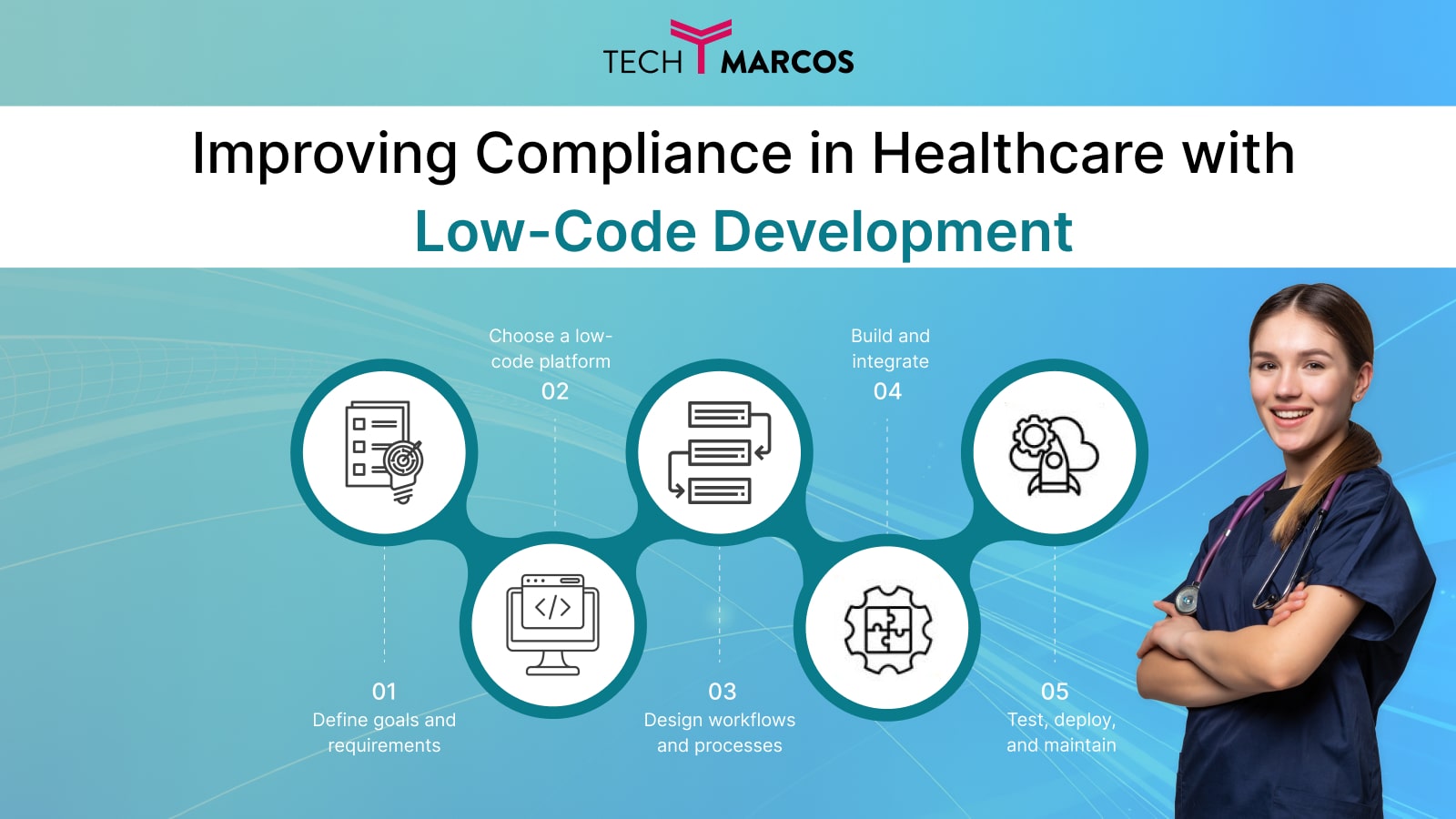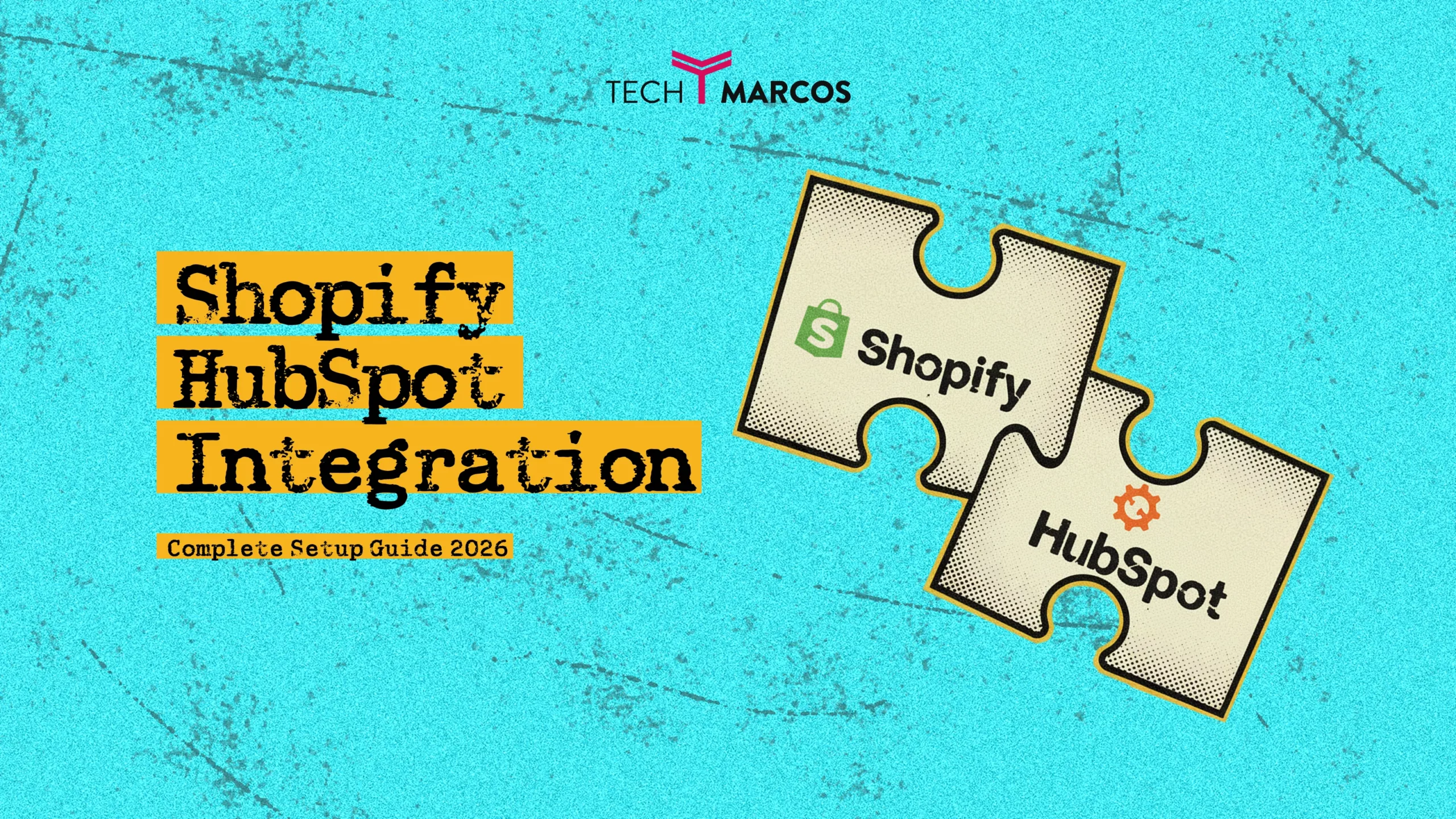Custom Software Development For Healthcare With Low-Code Development
|
Getting your Trinity Audio player ready...
|
The healthcare sector is subject to perpetual regulatory updates, and compliance becomes a major challenge for organizations. Government regulations like HIPAA, GDPR, and HITECH mandate healthcare providers to keep updating their custom software development for healthcare + systems to maintain data security, patient confidentiality, and operational integrity.
But manual adjustment of compliance takes time, is error-prone and expensive. Classic development lifecycles can find it hard to keep up with fast-changing rules, causing gaps in compliance and higher chances of fines. TechMarcos offers low-code development solutions that optimize compliance management by providing dynamic, flexible, and automated platforms. The solutions make it possible for healthcare organizations to quickly respond to regulatory changes, minimizing risks as well as improving operational efficiency.
This is where custom software development for healthcare shines. By partnering with experienced healthcare software development companies, organizations can leverage tailored solutions that optimize compliance management. TechMarcos, a leader in healthcare software development services, offers dynamic, flexible, and automated platforms that enable healthcare providers to quickly adapt to regulatory changes. These solutions, built by skilled healthcare software developers, minimize risks, improve operational efficiency, and ensure seamless compliance.
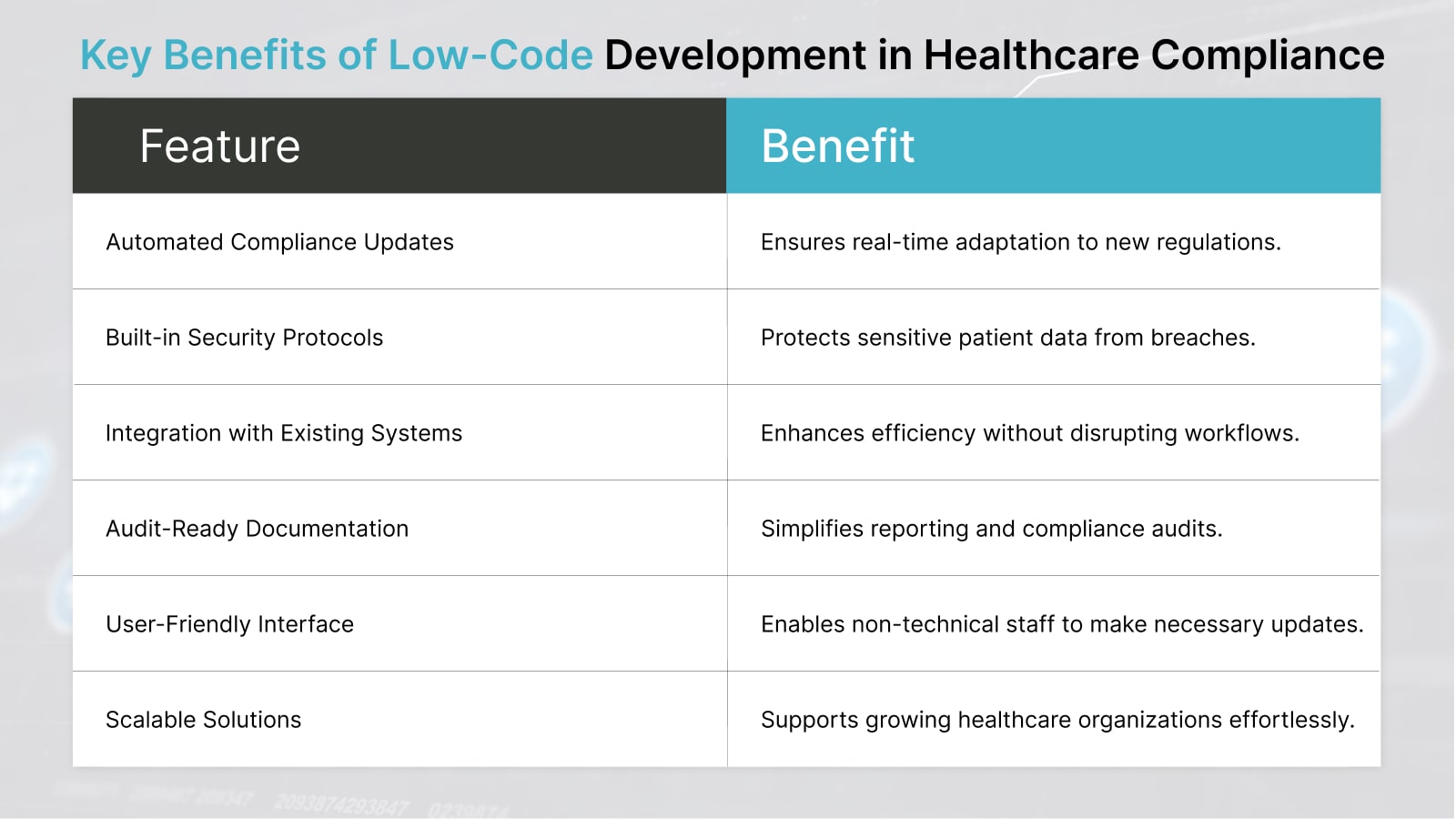
Source: HealthIT.gov
Challenges Healthcare Organizations Face
Regulatory bodies frequently introduce new laws to enhance patient safety and data protection. Healthcare providers must adhere to rules like:
- HIPAA (Health Insurance Portability and Accountability Act) – Ensures patient data privacy and security.
- GDPR (General Data Protection Regulation) – Protects personal data and enhances digital security.
- HITECH (Health Information Technology for Economic and Clinical Health Act) – Encourages the adoption of secure electronic health records (EHRs).
The Compliance Burden on Healthcare Organizations: Why It’s a Growing Concern
Healthcare providers spend significant time and resources manually updating processes to comply with regulations. Some common challenges include:
- Delayed system updates: Traditional coding methods require months to implement new compliance features.
- Inconsistent documentation: Manual compliance tracking often leads to discrepancies in records.
- Increased operational costs: Hiring IT teams for compliance updates can be costly for healthcare providers.
- High risk of penalties: Failure to comply with regulations can result in heavy fines and reputational damage.
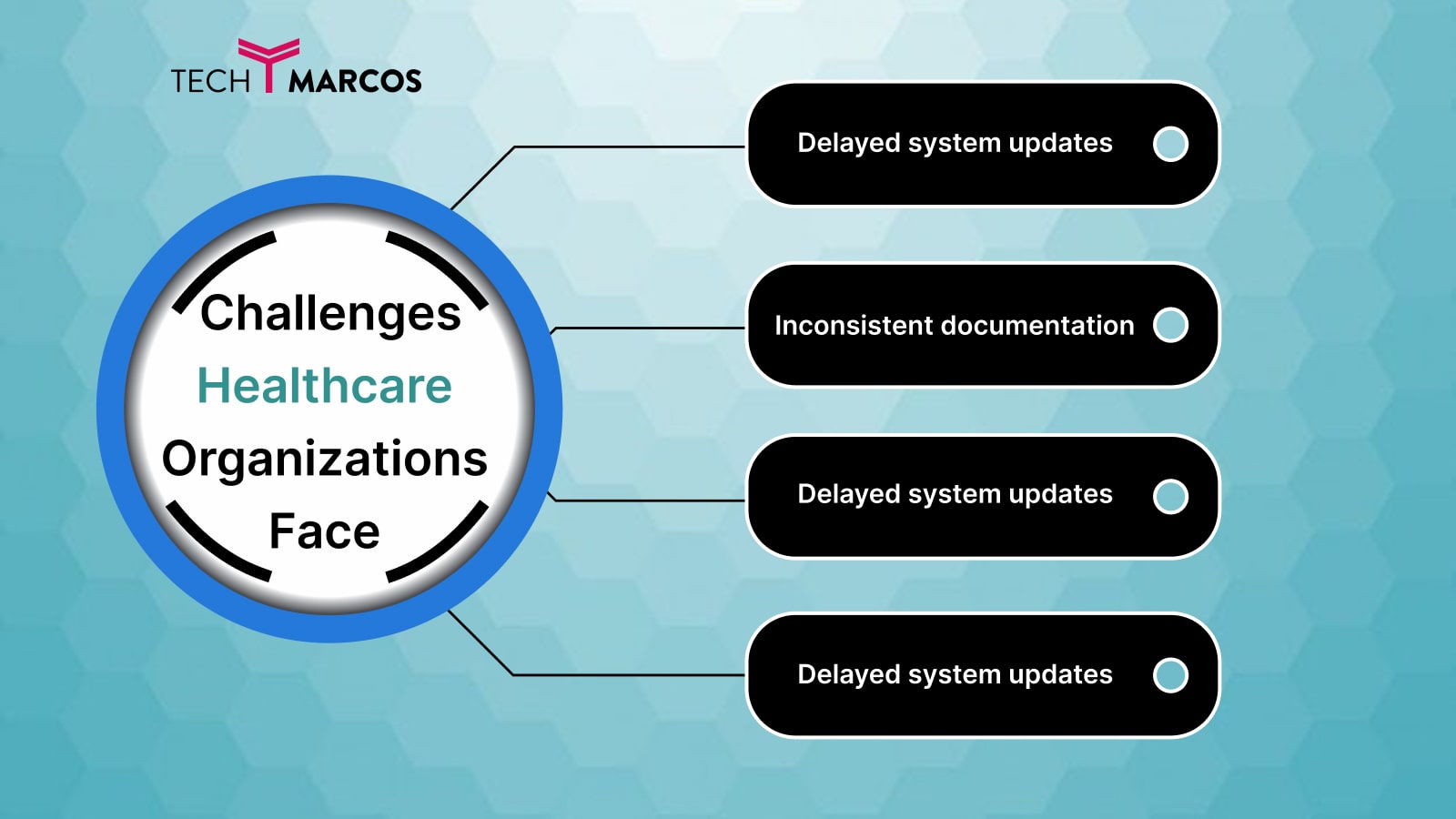
How Low-Code and Custom Software Development for Healthcare Transform Compliance Management
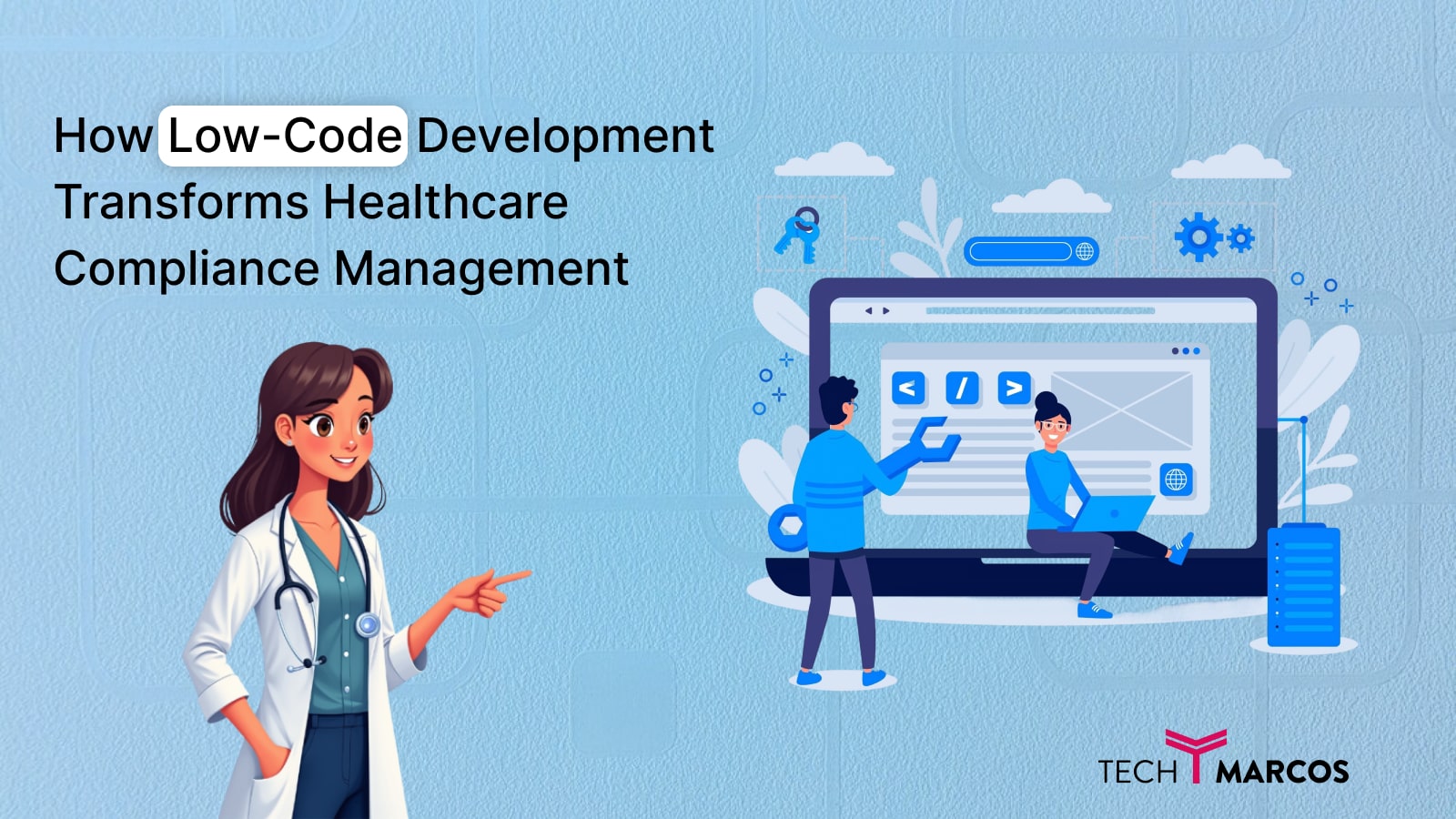
Low-code development platforms, such as the Decisions Platform developed by TechMarcos, enable healthcare organizations to automate compliance workflows efficiently.
1. Adapting to Constant Regulatory Changes Without Disrupting Daily Operations
Regulatory changes can occur suddenly, requiring healthcare providers to implement updates swiftly. Low-code development provides:
- Instant adaptation – Compliance rules can be updated through visual workflows instead of manual coding.
- Minimal disruption – Adjustments can be implemented without halting critical healthcare operations.
- Reduced IT dependence – Compliance teams can make necessary changes without waiting for development cycles.
2. Bridging Compliance and IT Teams with Custom Software Development for Healthcare
Traditionally, compliance teams rely on IT departments to implement regulatory changes, which often leads to miscommunication and delays. Low-code development:
- Eliminates bottlenecks – Compliance teams can configure updates using an intuitive interface.
- Ensures seamless integration – Works with existing EHR and CRM systems without requiring major overhauls.
- Automates data validation – Reduces errors by implementing real-time compliance checks.
3. Enhancing Data Security in Healthcare with Custom Software Development
With increasing cyber threats and data breaches, compliance also involves ensuring robust security measures. TechMarcos’ low-code solutions enhance security by:
- Implementing end-to-end encryption – Protects patient data at all stages.
- Using multi-factor authentication (MFA) – Restricts unauthorized access to sensitive records.
- Automating security audits – Identifies vulnerabilities and compliance risks before they escalate.
4. Preparing for Compliance Audits with Automated Reporting and Documentation
Compliance audits require extensive documentation and can be time-consuming. Low-code solutions simplify the process by:
- Generating real-time reports – Audits can be conducted more efficiently with automated data retrieval.
- Maintaining version control – Ensures all compliance changes are tracked and recorded.
- Reducing human errors – Minimizes manual intervention, lowering the risk of discrepancies in records.
Practical Steps to Implement Low-Code and Custom Software Development for Healthcare Compliance
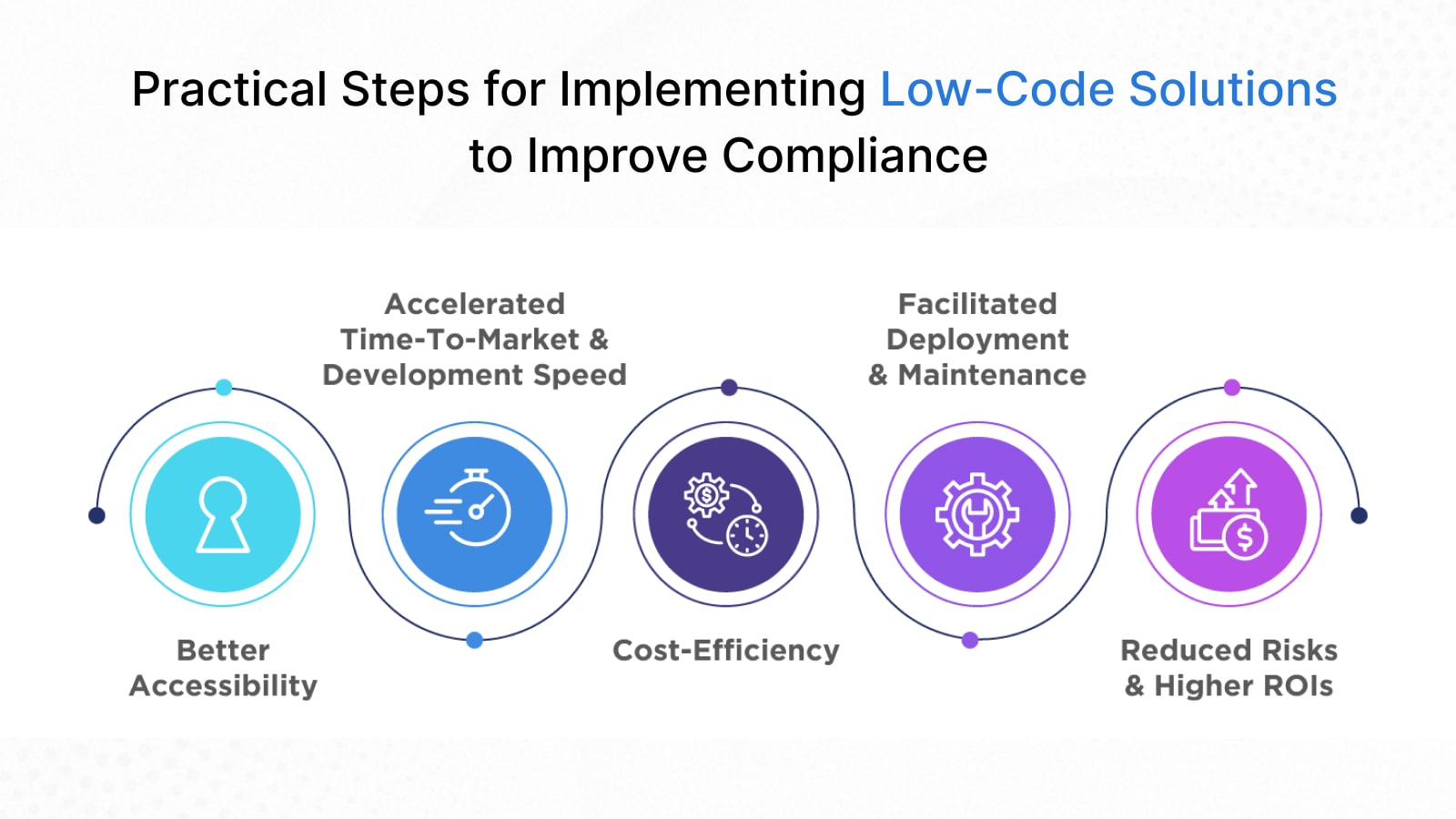
1. Identifying Compliance Gaps That Cause Delays and Inefficiencies
A thorough compliance audit should be the first step in identifying weak points in data security, patient records management, and regulatory reporting.
- Review current processes – Analyze existing compliance workflows to determine bottlenecks.
- Assess risk factors – Identify areas vulnerable to non-compliance and security threats.
- Prioritize improvements – Focus on high-impact areas that need immediate automation.
2. Selecting the Best Low-Code Platform for Custom Healthcare Software Development
Not all low-code platforms are designed for healthcare compliance. A reliable solution should offer:
- Pre-configured compliance templates – Reduces implementation time.
- Customizable automation tools – Adapts to changing regulations.
- Scalability – Ensures seamless expansion as regulatory needs evolve.
3. Leveraging Automation to Track Compliance Violations in Real-Time
One of the biggest challenges in compliance management is identifying and addressing violations before they result in penalties. Low-code solutions provide:
- Automated alerts – Notify teams of potential compliance breaches.
- Live compliance tracking – Provides real-time dashboards for monitoring adherence.
- Proactive risk management – Identifies potential threats before they escalate.
4. Training Staff to Master Low-Code and Custom Healthcare Software Tools
The effectiveness of a compliance solution depends on how well the staff utilizes it. To maximize adoption:
- Conduct hands-on training – Ensure staff members understand the platform’s capabilities.
- Encourage collaboration – Enable compliance and IT teams to work together efficiently.
- Provide ongoing support – Keep teams updated on new features and regulatory changes.
Conclusion: The Future of Healthcare Compliance Lies in Low-Code and Custom Software Development
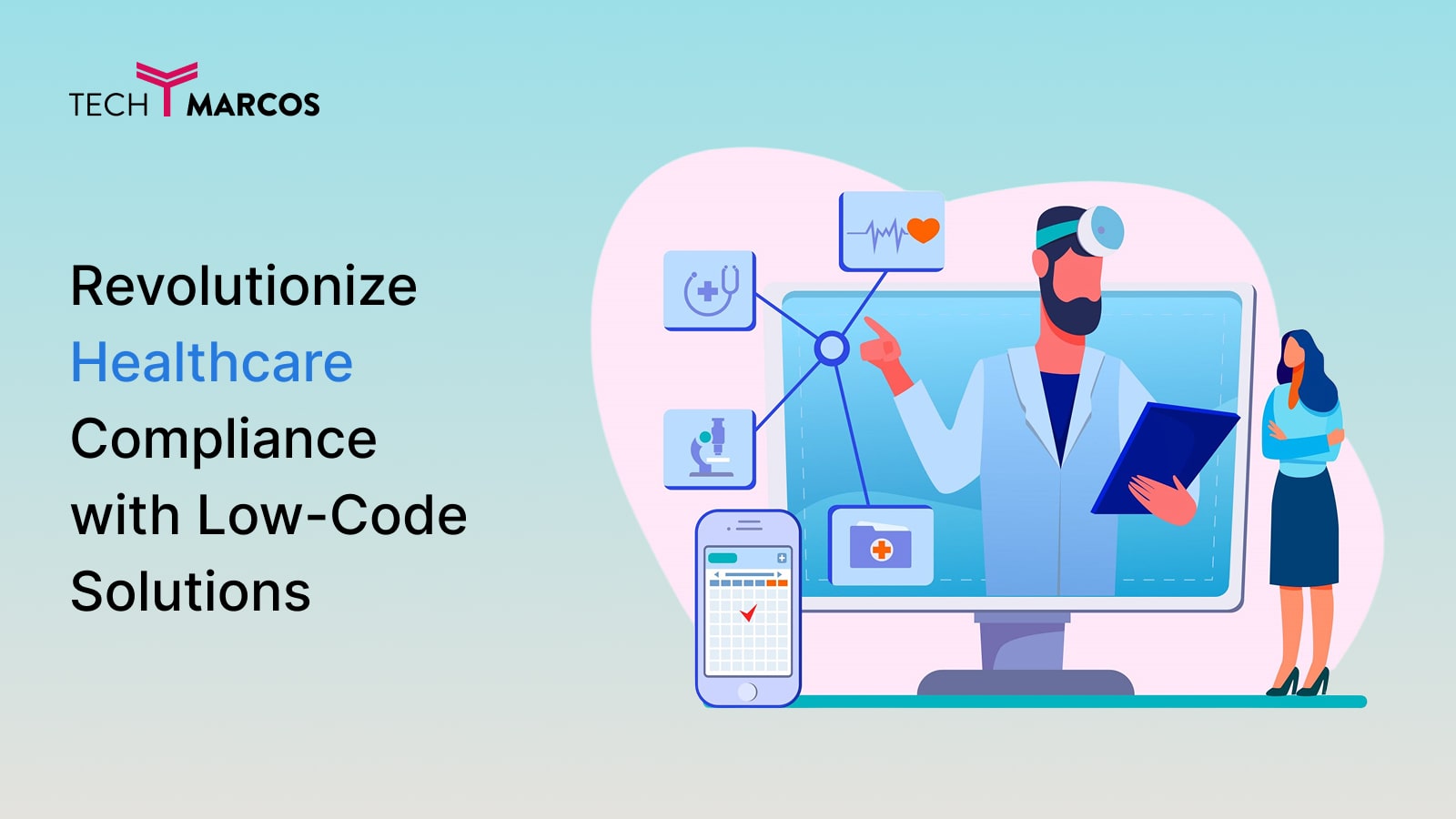
Compliance in healthcare is a constant challenge, yet low-code and custom software development for healthcare offer scalable, cost-saving, and efficient solutions. TechMarcos’ Decisions Platform, developed by expert healthcare software developers, streamlines regulatory evolution, improves security, and keeps healthcare providers compliant without expensive IT revamps.
By adopting low-code technology, healthcare organizations can automate compliance management, minimize risks, and concentrate on providing quality patient care. With regulatory environments changing at a lightning-fast pace, taking a proactive stance on compliance through automation is no longer a choice—it’s a necessity.
Ready to transform your compliance procedures? Contact TechMarcos, a trusted name Custom Software Development Agency, to learn how our innovative healthcare software development services can help you stay ahead of changing regulations.
